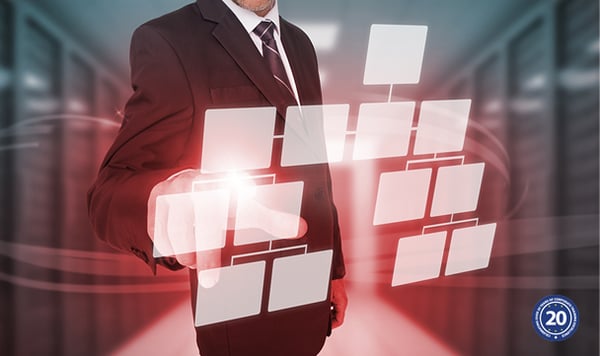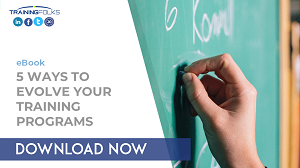CUSTOMIZE CORPORATE TRAINING WITH ADAPTIVE LEARNING

A challenge with traditional one-size-fits-all training is that it doesn’t address the difference in skills and knowledge of learners, or the generational and geographical diversity that can impact the ability of learners to master a topic.
In an in-person or virtual classroom training session, everyone sits through the same presentation. Since people have varying levels of knowledge and skills, those who are already familiar with the material may become bored and tune out. This lowers engagement and makes it that much harder for the learner to focus on the subject matter when moving on to a topic they know little about and need to learn.
Developing learning paths within a Learning Management Systems (LMS) is one way to address the varying training needs of employees. Individuals are enrolled in a learning path that includes courses and information to address their knowledge and skill gaps, following through a set sequence, with each course building on information from the previous one.
The next step in customizing the training experience is Adaptive Learning.
Adaptive learning is a strategy that customizes the learning experience to the specific needs of the individual employee. The use of technology in this process is becoming more widespread. Adaptive learning technology is any system that gathers data on a learner’s knowledge, skills, and confidence in a topic, and uses that data to modify the materials or tasks presented to the person during the training.1
A core tenet of adaptive learning is the idea that mastery—not seat time—should be the metric for success.2
There are several theories that support the idea of adaptive learning:
Metacognitive Theory – This is the theory that learners learn best when they know what they know, and what they don't know.3 “As learners progress through an adaptive course, the platform captures data on accuracy, confidence, and time. The platform will then automatically use this data to adjust content to further improve awareness about knowledge and confidence…."4
Theory of Deliberate Practice – In order to master a skill, it is necessary to practice it. Adaptive learning identifies an individual’s strengths and weaknesses, focusing on those areas in which they need more practice. Material on these weaker topics is presented in different ways to help them become proficient.
Ebbinghaus Forgetting Curve – To truly learn a new subject or skill, it must be committed to long-term memory. The Forgetting Curve shows how information is lost over time when if it is not reinforced. With adaptive learning, employees are prompted to review information at specific times to help with long-term retention.5
Benefits of using adaptive learning in employee training include:
- Provides a learning experience tailored to the unique knowledge and skill gaps of each individual.
- Improves interest and engagement by skipping topics learners already know and focusing on new ones.
- Training is progressive so learners feel they are advancing through the material, giving them a sense of accomplishment.
To learn about other training approaches that can improve the engagement and retention of your learning and development programs, download eBook, 5 Ways to Evolve Your Training Programs. This eBook outlines five training methods, the benefits of each and why you should consider them for your next training initiative.
1, 4 McGraw Hill Education: What is Adaptive Learning?
3 Chief Learning Officer: Artificial Intelligence Comes to Learning
2, 5 Association for Talent Development: Personalizing Adaptive Learning

